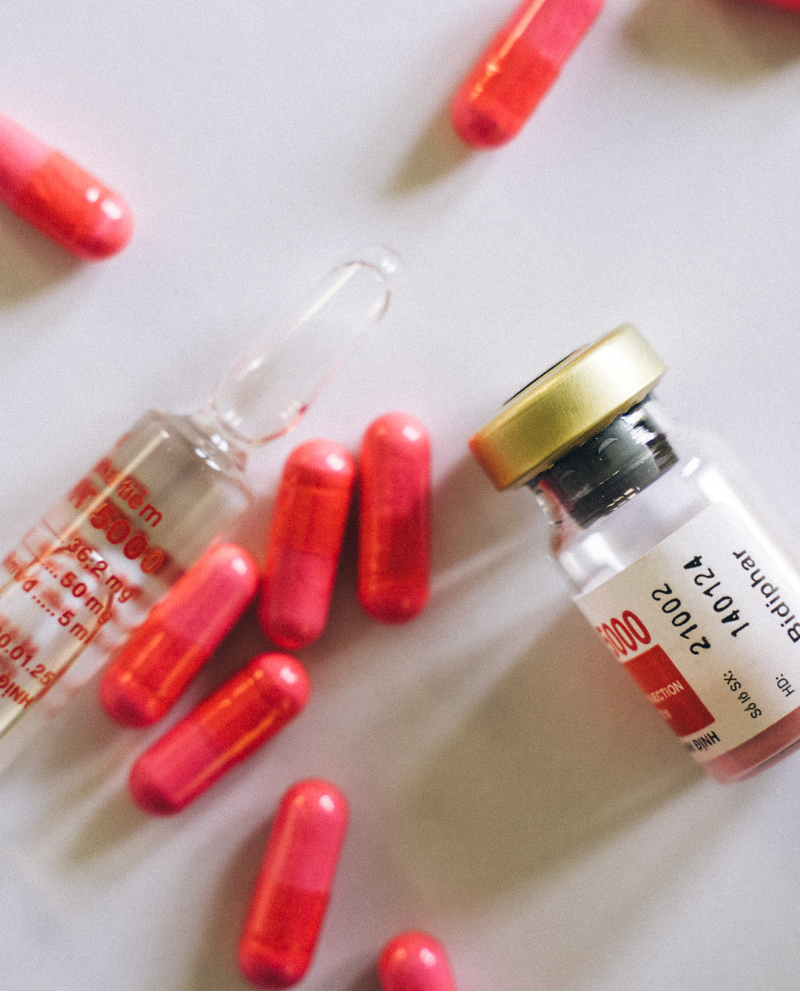Amphetamine withdrawal: what you should know
Amphetamine withdrawal can be both physically and psychologically stressful. Amphetamines have a strong stimulant effect and regular use quickly leads to addiction. Withdrawal symptoms often occur during withdrawal, including extreme tiredness, depression and a strong craving for the substance.
The withdrawal phase is divided into two stages: The acute phase lasts around 1 to 2 weeks and is characterized by intense symptoms. This is followed by the recovery phase, in which the body and mind slowly stabilize. It is important not to go through this process alone, but to seek support - be it from specialists or a stable social environment.
Amphetamine withdrawal: which medications help?
In amphetamine withdrawal, medication can help to alleviate the withdrawal symptoms and stabilize the body. Antidepressants are often prescribed to cushion the psychological effects such as depression and anxiety. These medications help to stabilize the mood and restore emotional balance.
Benzodiazepines can also be used to combat sleep problems and restlessness. They have a calming effect and help to reduce the high levels of tension. In more severe cases, antipsychotics are also used to treat psychotic episodes or extreme mood swings. It is important that medication is always taken under medical supervision, as it must be adapted to individual needs.


Amphetamine withdrawal Fatigue: a common symptom
Amphetamine withdrawal brings with it a variety of symptoms that can be both physically and psychologically very stressful. The most common symptoms include
-Extreme fatigue: the body is exhausted and needs a lot of rest to recover.
-Severe mood swings: Many sufferers experience periods of depression, irritability or anxiety.
-Sleep disorders: A disturbed sleep-wake rhythm, often accompanied by insomnia, is also typical.
-Intense craving for amphetamines: The so-called "craving" is one of the hardest symptoms and makes it difficult to persevere through withdrawal.
The symptoms are particularly pronounced in the first few days, but usually subside after about a week.
Amphetamine withdrawal Fatigue: a common symptom
Fatigue is one of the most typical and most pronounced symptoms during amphetamine withdrawal. As amphetamines have stimulated the central nervous system over a long period of time, the body falls into a state of extreme exhaustion after withdrawal. Many sufferers feel weak and feel the need to sleep a lot.
This fatigue can last for several weeks, as the body needs time to recover from the overstimulation. It is important to give in to this need for rest and take sufficient time to recover. Good sleep and regular breaks support the healing process and help to bring the body back into balance.
Amphetamine withdrawal duration: How long does it take?
The duration of amphetamine withdrawal varies depending on the person and their consumption behavior. As a rule, the acute phase of withdrawal lasts around 1 to 2 weeks, during which the physical symptoms such as fatigue, insomnia and mood swings are most severe.
However, the psychological recovery can take considerably longer. Many sufferers report sleep disorders and severe mood swings for weeks or months after acute withdrawal. Cravings for the drug in particular can persist for longer. A full recovery therefore requires patience and continuous support, be it through medical support or psychotherapeutic counseling.

Amphetamine withdrawal at home: is it safe?
Withdrawal from amphetamine at home can be possible in mild cases, but should always be well prepared and ideally accompanied by a doctor. Withdrawal at home is often risky, especially in cases of heavy or prolonged use, as the psychological and physical symptoms can be very intense.
It is important that you can count on support from friends or family and have a clear emergency plan in case the withdrawal symptoms become too severe. Professional help, for example in the form of outpatient therapy or counseling, can also provide valuable support. For severe addictions, it is often recommended to go through withdrawal in a clinic to ensure a safe and supervised environment.



